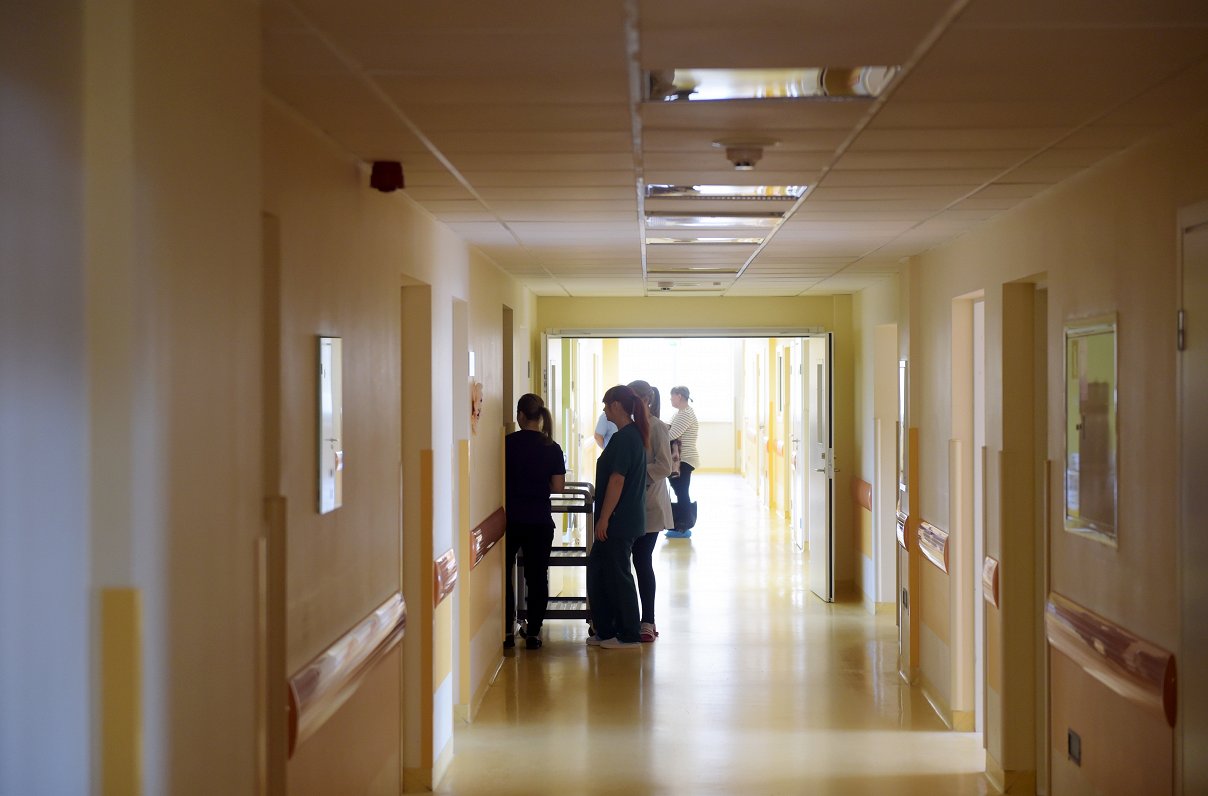In Short:
-
While the proportion of medical specialists in Rīga and its vicinity is on the increase, the lack of doctors in regions is noticeable.
-
The situation in the regions has not changed even after the measures taken by the VM to attract Rīga residents to positions outside the capital.
-
There is a shortage of almost 3 500 nurses and around 300 midwives; only 65% of specialists remain in Latvia after receiving their qualifications.
-
The generational replacement is insufficient – 55% of doctors and medical assistants are aged 50 or more.
-
Young Latvian doctors enter the market later than those in other Baltic countries, because of the longer courses.
-
The certification and re-certification of medical practitioners could be reviewed and improved.
-
The delay in raising the average wages for medical practitioners has undermined the prestige of the profession.
The audit concluded that the goal set by the Ministry of Health (VM) more than ten years ago – to provide the health care system with human resources in numbers and qualifications appropriate to the demands – has not been reached.
The problem is that the number of state-funded basic health care study graduates is higher than the number of residency places. Deficiencies were also identified in the field of medical certification and re-certification.
Although the number of doctors in Latvia corresponds to the number of physicians per 1000 population in Europe determined by the World Health Organization, in reality, there are either no doctors with special qualifications in many regions, or there are limited numbers of them.
Inga Vārava, the Director of the VK Audit Department, told Latvian Radio that the distribution of medical personnel is not optimal. There is a concentration of doctors in Rīga, while the regions are experiencing a shortage specialists in all areas.
The VK notes that the situation in the regions has not changed even after the measures taken by the VM to attract Rīga residents to positions outside the capital. Therefore, the State Audit Office believes that local governments should join the Ministry of Health to find new solutions for improving the situation, as the accessibility of health care services to the public is also the responsibility of local governments.
“Another important issue is the critical lack of nurses and midwives. And the situation definitely won't improve in the near future, as we prepare about 30% less nurses than the industry needs,” said Vārava.
The audit showed that there's a shortage of at least 3 500 nurses and 300 midwives in the industry.
Only 65% of specialists remain in Latvia after receiving their qualifications. And only 52% of nurses and 54% of midwives start working in Latvia after graduation. The generational replacement is ineffective – 55% of doctors and medical assistance are aged 50 or more.
“More than half of nurses and doctors are over 50, and the number of young specialists is lower than that of those who are 65 or above. Young Latvian doctors enter the market later than those in other Baltic countries, because of the longer courses. In Latvia, the length of residency studies in many medical specialties exceeds the minimum duration defined in the Professional Qualifications Directive. In Lithuania and Estonia, on the other hand, most of the residency studies meet these minimum requirements. And in our view, there is no justification for this, because we compared the content of studies and the distribution of theoretical and practical training, and found that it was the same,” said Vārava.
The audit found that there are twice as many regulated professions in the Latvian health sector than there are in Lithuania and Estonia, while there are about 1,5 times more specialties, sub-specialties and additional specialties.
"In this country, there's still a lack of co-ordinated planning of basic study that would meet the needs of the industry, because the universities that prepare doctors are under the command of two departments – education and health – while the planning of residency places is the responsibility of the Ministry of Health. As a result, the number of state-funded health care basic study graduates is higher than the number of residency places, and the targeted use of the state budget funds available for education has not been achieved,” stated the VK report.
The entry and mobility of nurses in the labor market is hampered by the complex system of acquiring nursing certifications.
The nursing education system prepares nurses with different levels of formal education, and specialisation in nursing is fragmented. VM plans to improve the nursing education system by creating one main specialization – a general care nurse, noted VK.
In order to be employed in a particular specialty, a physician must not only be listed in the medical practitioner register, but also has to obtain a certificate verifying his or her professional qualifications.
Physicians have to renew their certification every five years. The established re-certification requirements, however, are formal, and are partly or even systematically disregarded, as not all certification bodies check the information provided by the medical practitioner on his or her experience in the specialized practice.
Auditors draw attention to the fact that it is currently not possible to annul a medical practitioner's certificate in the event of a serious violation of the laws governing professional activities or ethical norms, as there is no cooperation and exchange of information between the Health Inspectorate, which ascertains the violations, and the certification bodies, which are entitled to annul the issued certificates.
VK noted that salary is a crucial aspect in attracting young people to pursue medical careers and preserve the existing human resources. Therefore, the VM had planned to increase substantially the wages of medical practitioners in 2009.
It is only in 2018, however, that the first steps were made towards making this a reality. This delay has caused a shortage of medical practitioners and has had a negative effect on the prestige of the profession.
In order to improve the development of human resources, the VK has provided the Ministry of health with 19 recommendations for increasing the accessibility of health care services, reviewing the professional and specialty regulations, refining medical education, improving the certification and re-certification systems, and using the Register of Medical Practitioners and Medical Assistants.





























